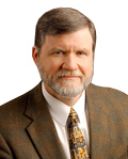Bias
There Are No Naturals in Experimental Science
Experimental scientists are made, not born.
Posted April 30, 2012
The Natural
A couple of weeks ago Gerry Lester Watson Jr., also known as Bubba, entered the first level of the golfers’ Pantheon by winning the 76th Masters in Augusta, Georgia in dramatic fashion. Earlier that day the South African sensation, Louis Oosthuizen, made history with an exceedingly rare double eagle (he holed his 253 yard second shot on the par 5 second hole at Augusta National) to take what appeared to be a commanding lead. As the day wore on, however, Watson gradually caught up to Oosthuizen and forced a sudden death playoff. On the second playoff hole, Bubba won the Masters with a spectacular hook through a small gap in the pine forest to land on the green within 10 feet of the hole.
Ever since Bubba joined the PGA tour in 2006, golf insiders have marked him as a future great. Bubba, many say, is a natural. His shot-making rivals that of Tiger Woods. Both are creative geniuses on the golf course. Unlike Woods, who has famously hired multiple swing coaches and undertaken numerous analyses and alterations of his swing over the course of his career, Bubba is renowned for never having had a formal golf lesson in his life. Bubba has employed no swing coaches, and he has not even once watched a video of his swing for the purposes of analysis. Apparently, Bubba does not even practice very much. Bubba seems to have walked down the road to his accomplishments effortlessly and in a leisurely fashion.
Experimental Scientists Are Made Not Born
Bubba Watson’s triumph contrasted starkly with what was reported in a series of commercials that accompanied the CBS telecast of the Masters. Exxon Mobil ran a collection of spots highlighting the mediocre, if not dismal, performance of American students in international competitions in mathematics and science. In the competitions that they noted, American students finished twenty-fifth in mathematics and seventeenth in science. The dire warnings and reports about such problems and the billions of dollars spent on education in America notwithstanding, the performance of American students in science and math has been in gradual decline over the past five decades.
Even though golf does not come naturally to most of us, it evidently does to Bubba Watson. Experimental science, however, does not have any Bubba Watsons. In contrast to highly mathematical areas of theoretical science where natural aptitude – think Einstein -- does seem to play a role, experimental science does not come naturally to anyone. Experimental scientists are made not born.
Successful experimental science requires teams of highly educated practitioners, who have typically had two decades or more of schooling and who have spent at least a few years as apprentices to experienced senior scientists carrying out advanced experimental work. These researchers have acquired a command of multiple areas of higher mathematics. In addition, they have mastered basic science, experimental design, and the literature of their own science and of the specific contemporary debates to which they hope to contribute.
Standing on the Shoulders of Giants
Psychological research indicates that even highly trained practitioners’ performance can crash when problems on the types of deductive and probabilistic inference that scientists routinely undertake are not cast in familiar forms and when their solutions run counter to the deliverances of humans’ intuitive cognitive heuristics. Experimental research in the cognitive science of science shows that the deliverances of other intuitive systems regularly intrude in reasoning about basic problems in physics, biology, and psychology. Moreover, scientists are human beings. Their reasoning and memories are fallible, and they are no less sensitive to self-interest than anyone else. Researchers can exhibit what is known as “confirmation bias” when evaluating empirical evidence bearing on hypotheses they prefer.

Isaac Newton
Science, in short, is hard to learn and hard to do. Most of the skills that are pivotal to experimental science do not come naturally to the human mind. After all, even Isaac Newton, who was, perhaps, the single most influential figure in the history of science and one of the best candidates ever for being a scientific natural, held that if he had seen further than others, it was only because he had stood on the shoulders of giants.


